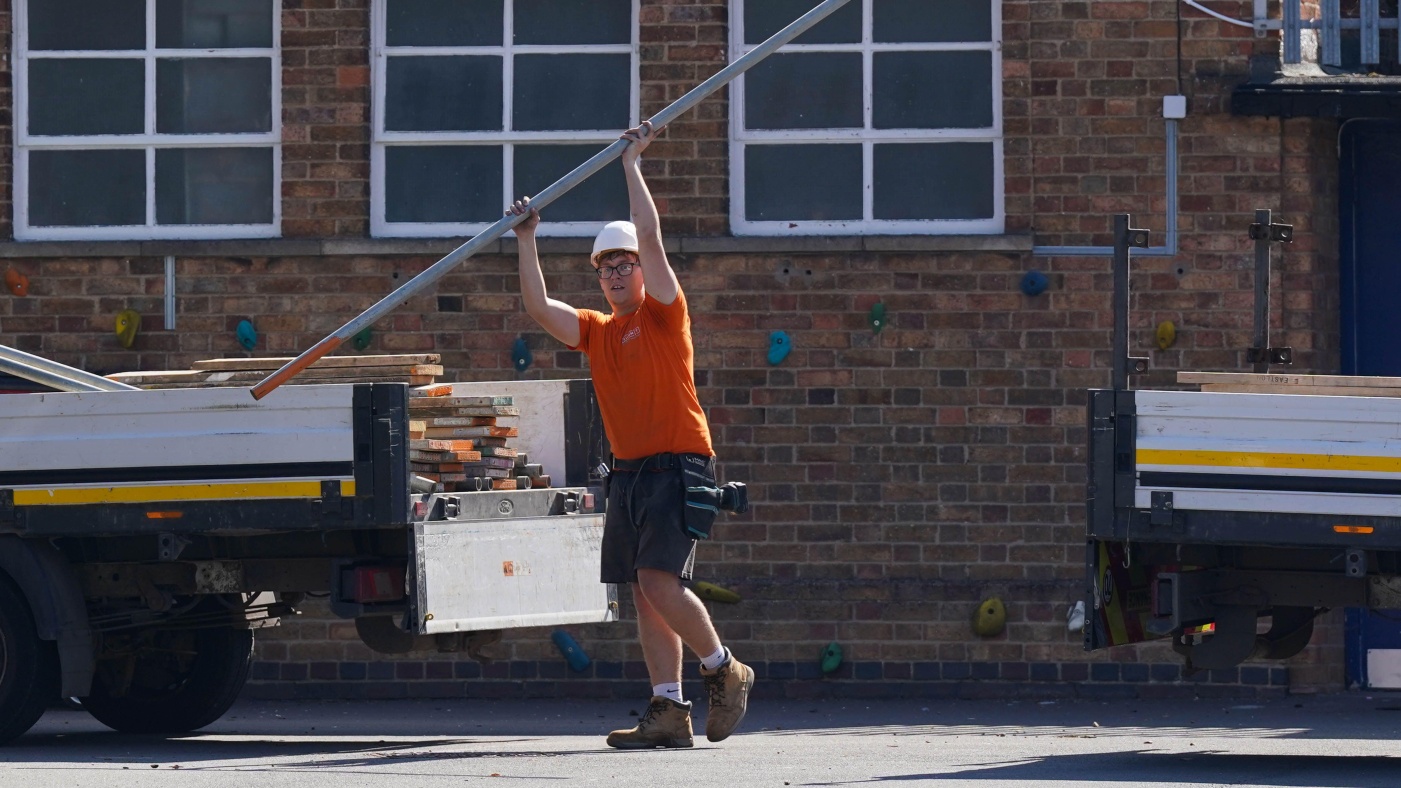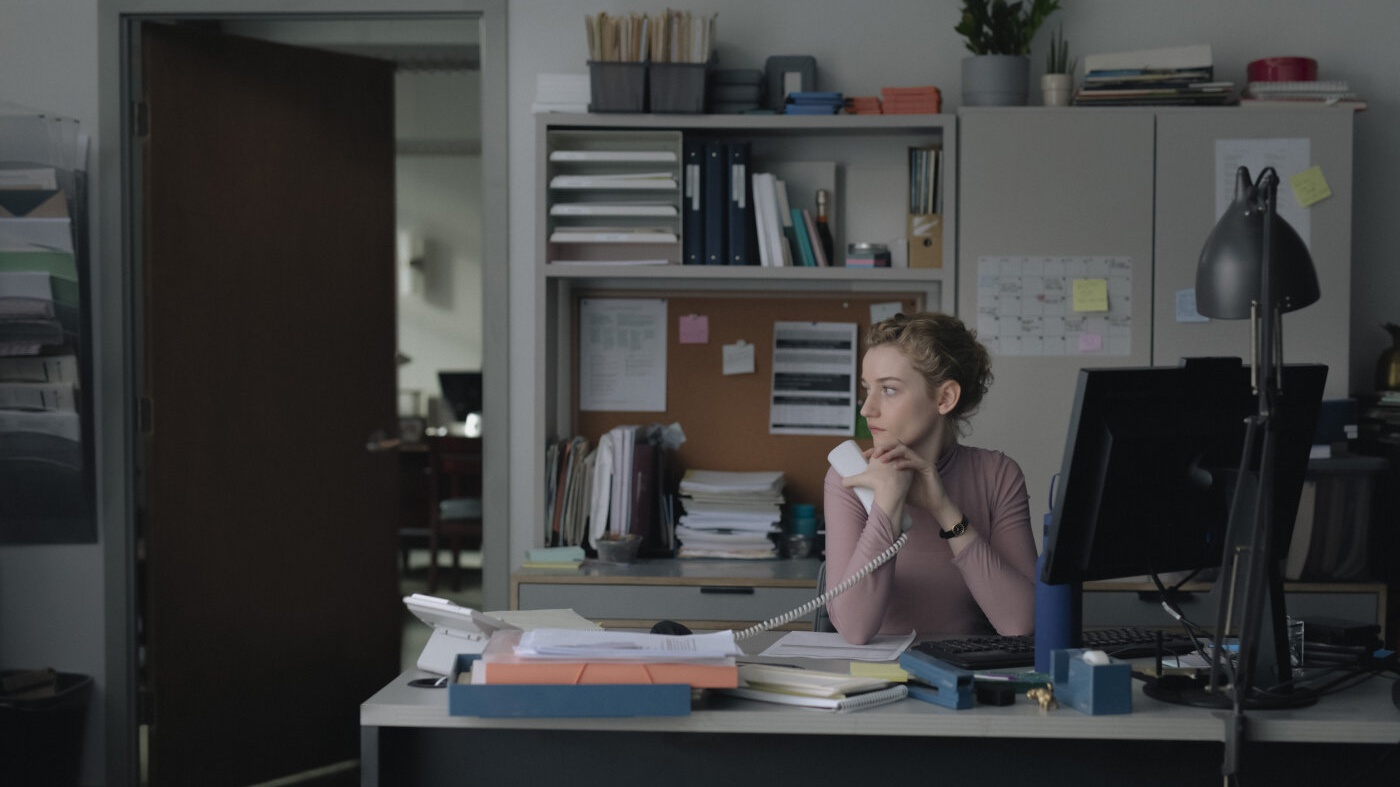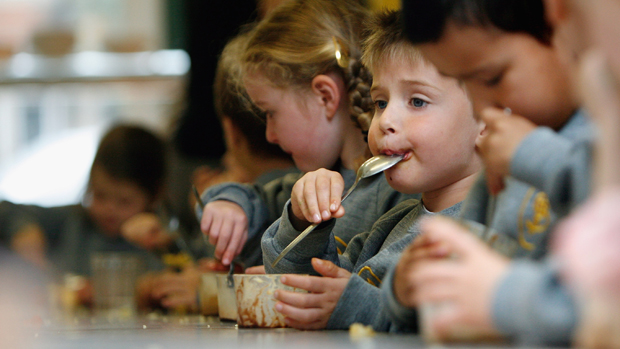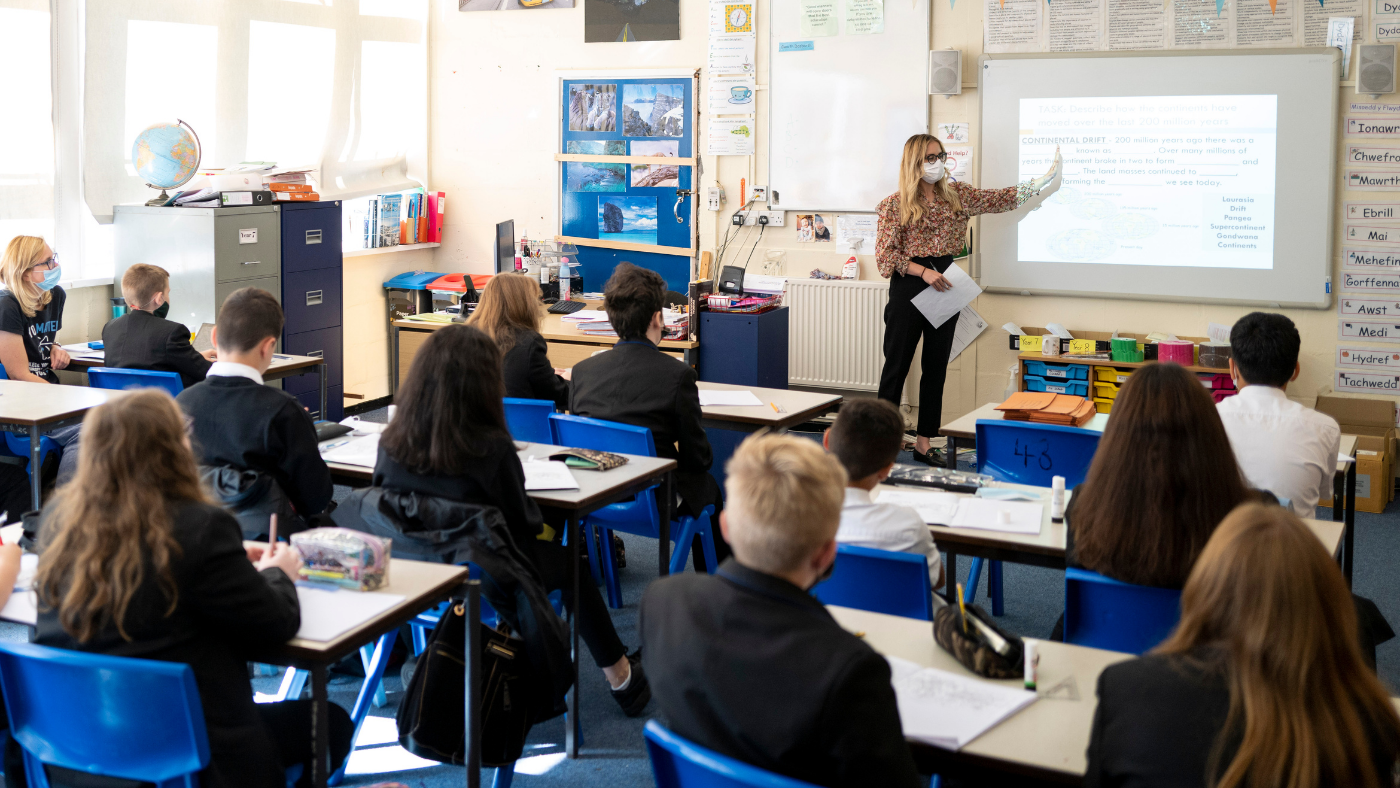The RAAC concrete crisis: fears spread to hospitals, homes and theatres
Experts call for tens of thousands of buildings to undergo safety checks as crumbling schools scandal escalates

A free daily email with the biggest news stories of the day – and the best features from TheWeek.com
You are now subscribed
Your newsletter sign-up was successful
Public and private buildings across the UK may be affected by the crumbling concrete crisis that has hit schools, experts are warning.
Safety concerns over the use of reinforced autoclaved aerated concrete, or RAAC, has forced the full or partial closure of 147 UK schools so far. And many courts, hospitals and other public buildings were also built with the unsafe material.
An unknown number of private sector offices and warehouses could be affected too, according to researchers from Loughborough University, who were the first to warn the government about the RAAC safety risks. Professor Chris Goodier told the BBC that although most affected buildings were unlikely to be dangerous, checks were needed to ensure that tens of thousands of structures did not have serious flaws.
The Week
Escape your echo chamber. Get the facts behind the news, plus analysis from multiple perspectives.

Sign up for The Week's Free Newsletters
From our morning news briefing to a weekly Good News Newsletter, get the best of The Week delivered directly to your inbox.
From our morning news briefing to a weekly Good News Newsletter, get the best of The Week delivered directly to your inbox.
“We’ve suddenly found out that a certain proportion of our building stock is not as good as we thought it was,” he said, and “even if it’s just one per cent of 10 million, that’s 100,000”.
Which buildings are affected?
The National Audit Office reported in July that 41 hospital buildings were partially built with RAAC, including seven where the dangerous concrete was found “throughout” the hospitals. Two of these hospitals have already been rebuilt, while a further five will be replaced by 2030 under the government’s new hospitals programme.
Harrow Crown Court, in northwest London, was closed last month and could remain so for nine months after the material was found there, while another five court buildings with RAAC have been identified, according to government sources. Three buildings in the Department for Work and Pensions (DWP) are also thought to be affected.
At least five regional theatres have been forced to close as a precautionary measure and a “small number of select backstage areas” at the National Theatre in London were found to have RAAC present, said a spokesperson. Claire Walker, co-chief executive of the Society of London Theatre and UK Theatre, told The Stage she believed the number of affected theatres “will be extremely limited”.
A free daily email with the biggest news stories of the day – and the best features from TheWeek.com
Some experts also think it is likely that RAAC was used in building homes between the 1950s and 1990s, with council housing a particular concern. Up to 10% of council housing may have been built using RAAC, reported Inside Housing. However, a spokesperson for the Regulator of Social Housing (RSH) told Housing Today that the use of the concrete was “not widespread” in social housing.
The Local Government Association has ordered councils to check whether any buildings on their estate, including housing, contain RAAC.
What is RAAC?
Reinforced autoclaved aerated concrete is a lightweight material that was used mostly in flat roofing, but also in floors and walls, between the 1950s and 1990s.
It was used as a cheaper and easier to install alternative to standard concrete, but is much less durable and has a lifespan of around 30 years.
Experts have found that the material is susceptible to sudden failure, particularly if exposed to moisture, leading to fears that buildings from the 1950s to 90s are at risk of collapse.
Early warnings about RAAC emerged in 1995, when an engineer wrote to the journal of the Institution of Structural Engineers recommending that it “not be used in permanent structures”. He described the material as a “booby trap”.
The UK’s Building Research Establishment (BRE) published warnings in the following years, noting excessive deflections and cracking in pre-1980s buildings. But the use of RAAC gained significant attention in 2018 when a ceiling collapsed in a Kent primary school, having shown signs of structural stress the previous day.
The issue then came to a head this summer, when the government became aware of three cases where RAAC previously judged to be in a non-critical condition failed. The first was in a commercial setting and the second was in a school in a different educational jurisdiction.
Then, in late August, a RAAC panel that had previously been deemed safe failed at a school in England. It was then that the Health and Safety Executive (HSE) announced: “Raac is now life-expired. It is liable to collapse with little or no notice.”
What next?
Professor Goodier’s team at Loughborough University is advising the government to inspect any buildings deemed to be at risk, but said that a new approach involving ongoing inspections and management for potentially tens of thousands of buildings is likely to be needed. But inspecting private sector buildings, where the government doesn’t have the same jurisdiction and control, could prove to be a trickier undertaking, warned Goodier.
The researchers have dubbed the approach “living with RAAC” and advised that the removal of the material be treated similarly to the asbestos crisis of the 1980s and 90s.
More inspections of more buildings, however, is likely to lead to the discovery of even more crumbling concrete. That means more buildings could face closures.
Sorcha Bradley is a writer at The Week and a regular on “The Week Unwrapped” podcast. She worked at The Week magazine for a year and a half before taking up her current role with the digital team, where she mostly covers UK current affairs and politics. Before joining The Week, Sorcha worked at slow-news start-up Tortoise Media. She has also written for Sky News, The Sunday Times, the London Evening Standard and Grazia magazine, among other publications. She has a master’s in newspaper journalism from City, University of London, where she specialised in political journalism.
-
 6 of the world’s most accessible destinations
6 of the world’s most accessible destinationsThe Week Recommends Experience all of Berlin, Singapore and Sydney
-
 How the FCC’s ‘equal time’ rule works
How the FCC’s ‘equal time’ rule worksIn the Spotlight The law is at the heart of the Colbert-CBS conflict
-
 What is the endgame in the DHS shutdown?
What is the endgame in the DHS shutdown?Today’s Big Question Democrats want to rein in ICE’s immigration crackdown
-
 Children trapped 900ft in the air in Pakistani cable car emergency
Children trapped 900ft in the air in Pakistani cable car emergencySpeed Read A helicopter rescue effort has been launched to save the stranded group of eight
-
 Andrew Tate and the radicalisation of teenage boys
Andrew Tate and the radicalisation of teenage boysTalking Point Teachers say male students are being sucked into former kickboxer’s ultra- macho world where they are exposed to his disturbing views
-
 The power the Church of England has in the UK
The power the Church of England has in the UKfeature Critics have questioned the relevancy of the Church’s influence in schools and politics
-
 The Week Unwrapped: Home-working pay cuts, Taiwan and Cinderella
The Week Unwrapped: Home-working pay cuts, Taiwan and Cinderellapodcast Should people who work from home earn 20% less? Is Taiwan at risk of a Chinese invasion? And what does the failure of Andrew Lloyd Webber’s latest production tell us about post-Covid theatre?
-
 The Week Unwrapped: Schools, births and children’s appetites
The Week Unwrapped: Schools, births and children’s appetitespodcast Do private schools make pupils happier? Is the NHS still failing British mothers? And when do we learn to be carnivores?
-
 ‘Teaching positives of colonialism brushes dead bodies under the carpet’
‘Teaching positives of colonialism brushes dead bodies under the carpet’Instant Opinion Your digest of analysis from the British and international press
-
 ‘President Zelensky is in over his head’
‘President Zelensky is in over his head’Instant Opinion Your digest of analysis from the British and international press
-
 ‘Learning about the Holocaust is not supposed to be a comfortable experience’
‘Learning about the Holocaust is not supposed to be a comfortable experience’Instant Opinion Your digest of analysis from the British and international press